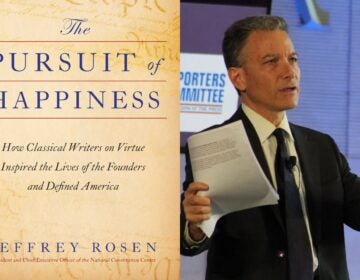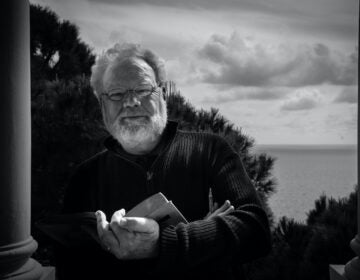America’s founders had specific ideas about the ‘pursuit of happiness.’ Now they have been put to music
The Constitution Center’s Jeffrey Rosen wrote songs about the moral philosophy behind the Founding Fathers’ signature phrase.
From Philly and the Pa. suburbs to South Jersey and Delaware, what would you like WHYY News to cover? Let us know!
During the COVID lockdowns, Jeffrey Rosen, director of the National Constitution Center, dove into a deep reading of the philosophies that inspired the nation’s founders to conceive the Declaration of Independence. He even adopted their daily regimens to live into their concept of “happiness” as a lifestyle of self-reflection and mental discipline.
That resulted in Rosen’s book, “Pursuit of Happiness,” released last year.
But Rosen realized there was more he wanted to say about happiness, which could only be expressed through music.
“I spent a year during COVID reading Jefferson’s books and I tried to follow his crazy schedule. I got up two hours before dawn, read moral philosophy, watched the sunrise, and found that I was writing these unusual sonnets to sum up the wisdom,” Rosen said. “Toward the end of the project, I started writing songs.”
Rosen wrote a cycle of a dozen art songs, “The Golden Mean,” each taking on a virtue that Benjamin Franklin listed as essential to living a good life: temperance, silence, order, resolution, frugality, industry, sincerity, justice, moderation, cleanliness, tranquility, chastity and humility.
Franklin would review his list of virtues daily, marking each with an “X” whenever he failed to live up to its expectation. He quickly realized that staying faithful to this list is near impossible.
“I made so little progress in amendment, and had such frequent relapses, that I was almost ready to give up the attempt and content myself with a faulty character,” Franklin wrote in his autobiography.
“Tho’ I never arrived at the perfection I had been so ambitious of obtaining, but fell far short of it,” Franklin wrote. “Yet I was, by the endeavor, a better and a happier man than I otherwise should have been if I had not attempted it.”
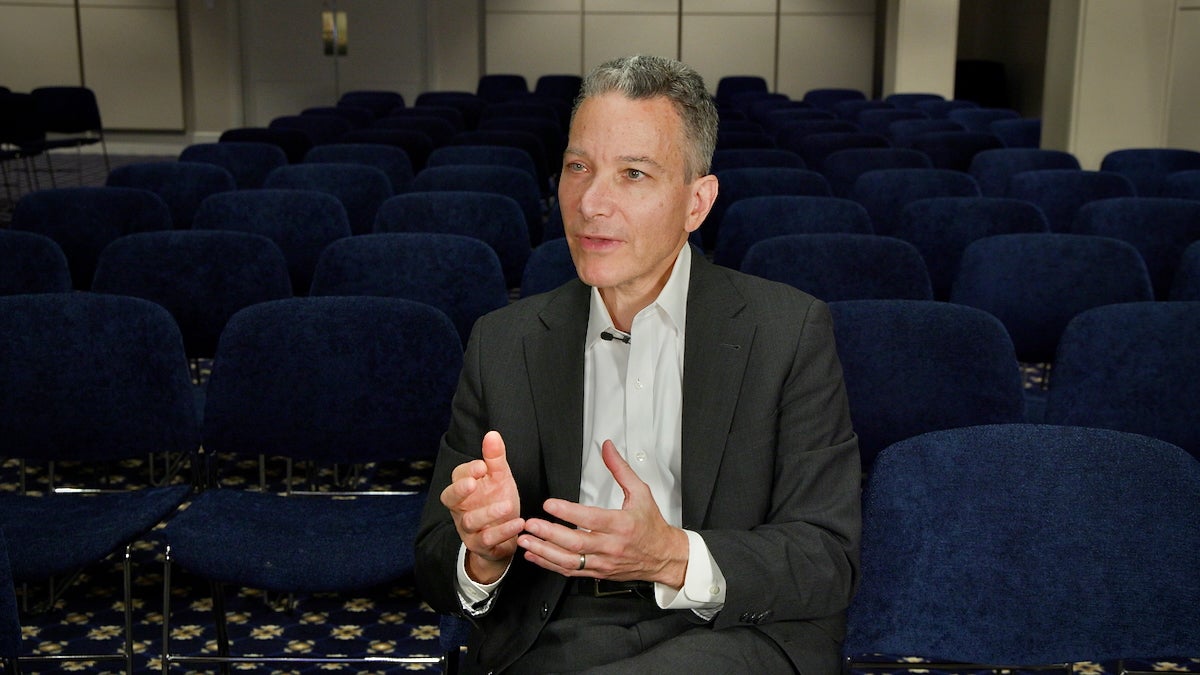
Setting happiness to music
Rosen has no previous training in music composition. He plays some piano and has sung in the past, never professionally, but is a longtime fan of the English classical art song tradition, such as Ralph Vaughan Williams and Gerald Finzi.
Rosen found kinship in Paul McCartney, who famously never learned to write musical notation.
“I never imagined that I could write songs, but just as I was turning in the ‘Happiness’ book I saw a video of Paul McCartney composing ‘Liverpool Oratorio,’” Rosen said. “He told the story of how one morning he woke up with a tune for ‘Yesterday’ in his head. A few days later I woke up with a tune in my head. They just started coming.”
“The Golden Mean” song cycle had its public debut at the American Philosophical Society on Sept. 8, when baritone James Martin and pianist Jennifer Blyth, both from Dickinson College near Harrisburg, came to Philadelphia to perform.
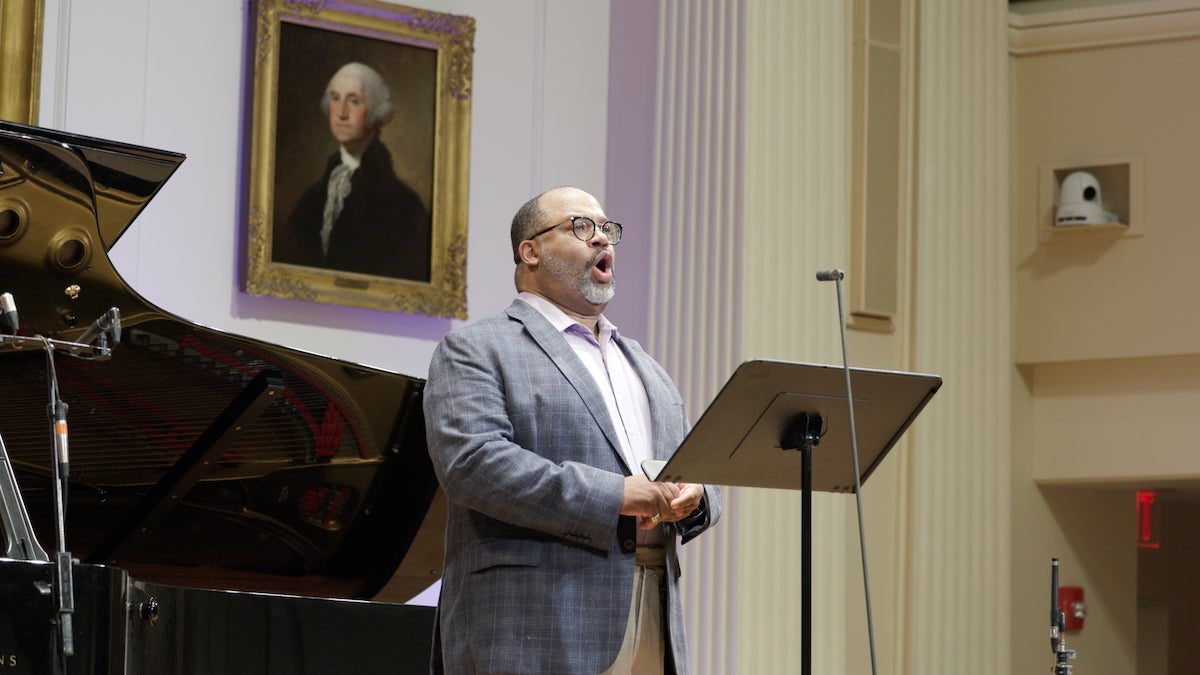
The songs are being used in Rosen’s new podcast “Pursuit.” In each episode, Rosen and guests dive into one of the virtues outlined by Franklin. A regular guest on the podcast is filmmaker Ken Burns, whose 12-hour documentary about the American Revolution debuted on WHYY and other PBS stations on Nov. 16.
The songs articulate Rosen’s meditations on the founders’ virtues to improve character, such as temperance, from which the Greek philosopher Plato believed happiness could be obtained by “ordering or controlling of certain pleasures and desires.”
Many of the founders read and expounded on the philosophy of Pythagoras, who advised, “Let reverence of thyself, thy thoughts control, and guard the sacred temple of thy soul.”
John Adams wrote in 1786 that the “‘Reverence thyself’ is a precept of private morality, but it is applicable and equally necessary to states.”

Rosen describes temperance in his song “Calm Self-Mastery”:
Calm Self-Mastery
Controlling your emotions
Takes work every minute
Gotta work hard to stay easy and light
Keep working hard
Every hour and every minute
To stay in the zone of calm delight
For his song on the virtue of tranquility, Rosen leaned into the Roman philosopher Cicero’s “Tusculan Disputations” concept of “perturbations of mind,” against allowing anxiety, expectations and grief to flood a person’s thoughts.
“Happiness consists not in the success or failure of our efforts, which is beyond our control, but in the pursuit itself,” Rosen writes in “Pursuit of Happiness.”
In song, Rosen describes tranquility by appreciating the moment as it happens:
Security is an illusion
I won’t it find it when I pray
Futurity is an intrusion
On being present in the day
How happy can you get?
The word “happiness,” as it appears in the Declaration of Independence as one of three inalienable rights, was not used in the way most people intend today. Rather than a pursuit of pleasure, happiness was more about self-improvement and lifelong learning.
Rosen said that shift in the meaning of happiness reflects back on the other two “inalienable rights”: Life and liberty. In the original intention of the founders, life, liberty and happiness were not meant to mean unbridled freedom.
“They really thought that unless individual citizens could find the self-mastery to be their best self, the republic would fall,” Rosen said. “For the founders, personal self-government is necessary for political self-government.”
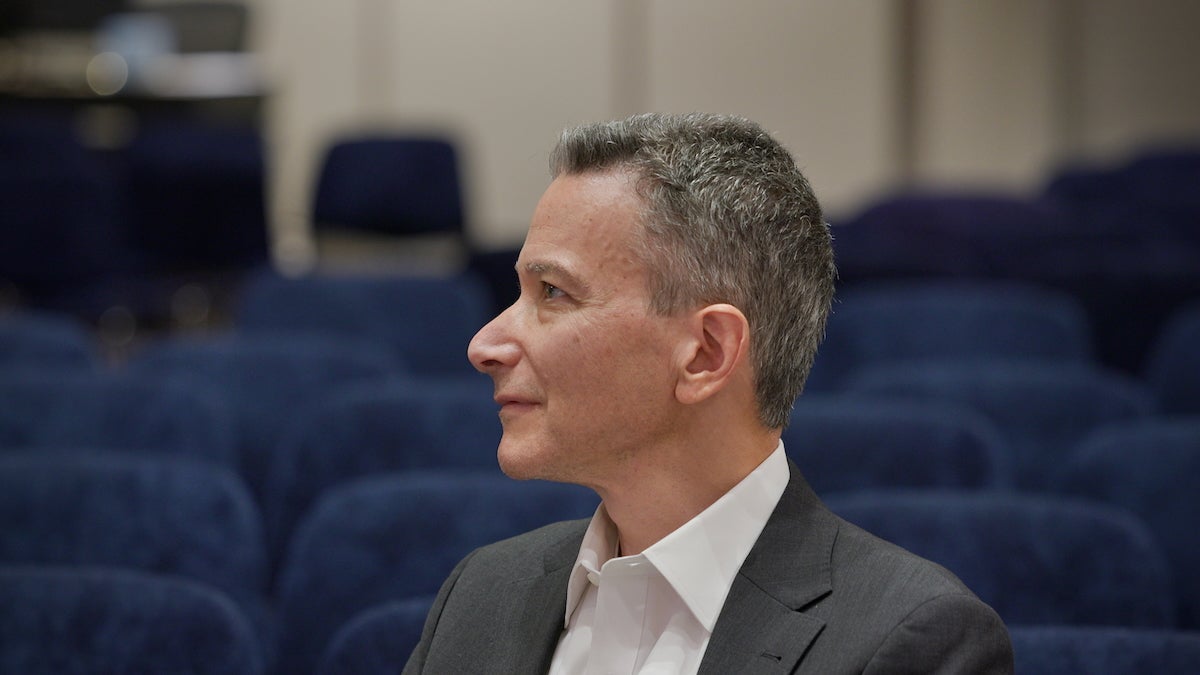
Rosen has discovered that, to many readers and listeners, the definition of “happiness” is much more than a parsing of historic syntax. Since publishing “Pursuit of Happiness,” he has traveled widely talking about it to appreciative audiences.
“I’m astonished by how deeply people get it,” he said. “I spoke at Brigham Young University where 5,000 undergrads stood up — I asked them to recite the Mormon oath where they pledged to follow the virtues and they all did it by memory. I’ve had experiences in places like Elkhart, Indiana, and Cookeville, Tennessee, where hundreds of people will gather in a local church to talk about their morning practice of self-mastery.”
“A lot of people have the same hunger for some alternative to the kind of let-it-all-hang-out hedonism celebrated by pop culture,” he said.

Has practicing this kind of happiness of self-mastery made Rosen happier, in the pleasurable sense?
“The daily practice of self-discipline makes you feel like you’re a better person, and that you haven’t made a total hash of the day if you actually do some reading in the morning,” he said. “There is a difference between the pursuit of happiness as self-mastery, and pleasure, which is kind of immediate gratification.”
“Then there is joy,” he said. “The reason I wrote these songs is to experience joy.”
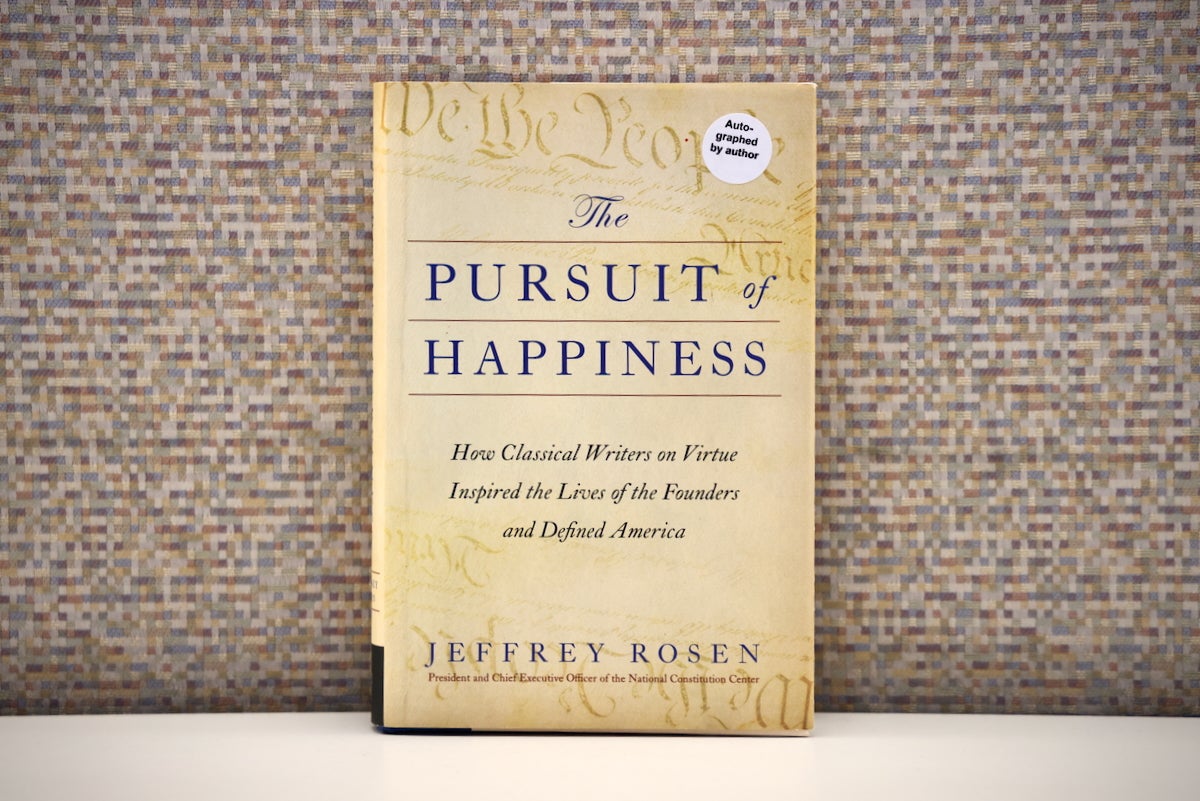

Saturdays just got more interesting.
WHYY is your source for fact-based, in-depth journalism and information. As a nonprofit organization, we rely on financial support from readers like you. Please give today.



